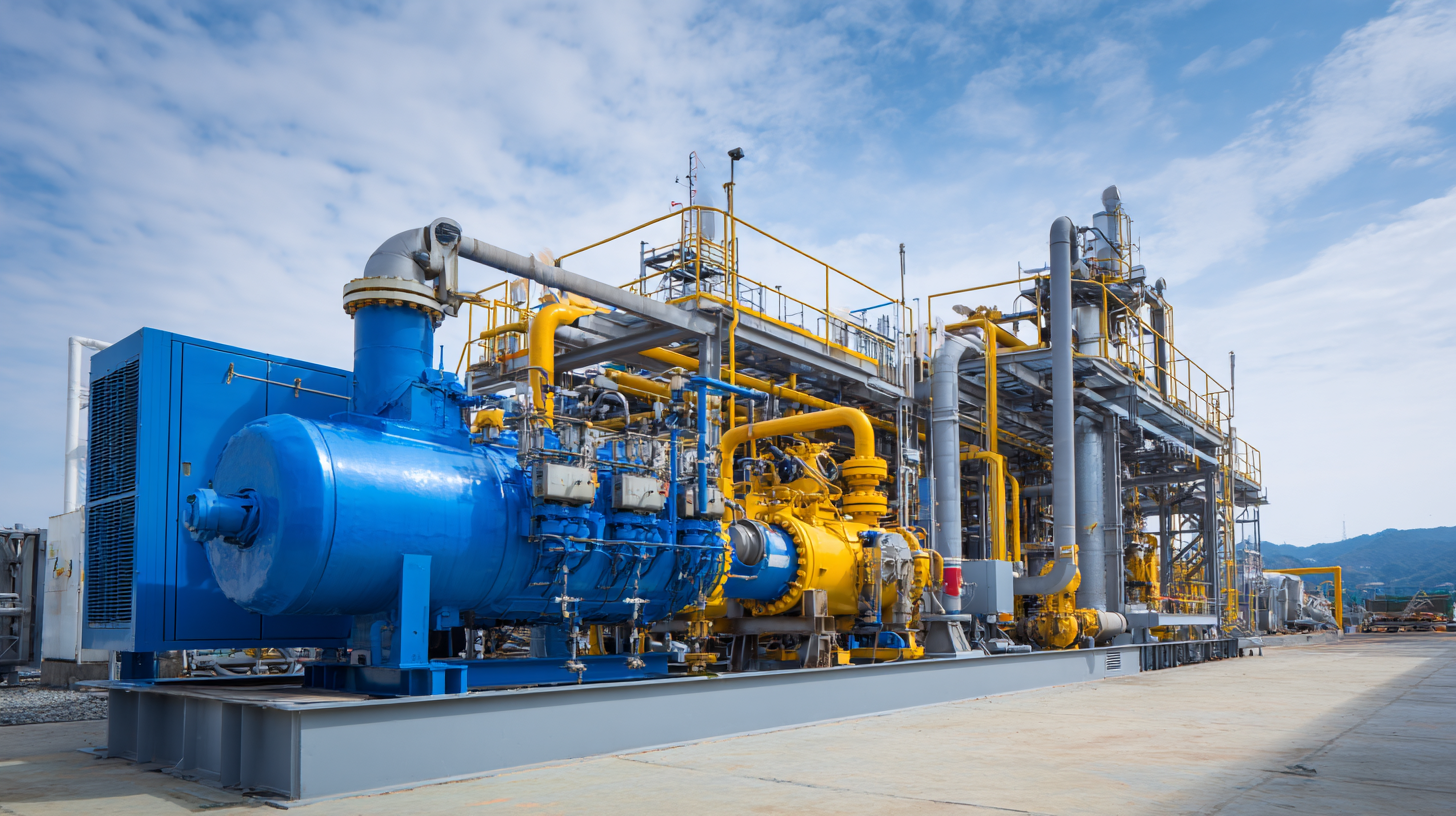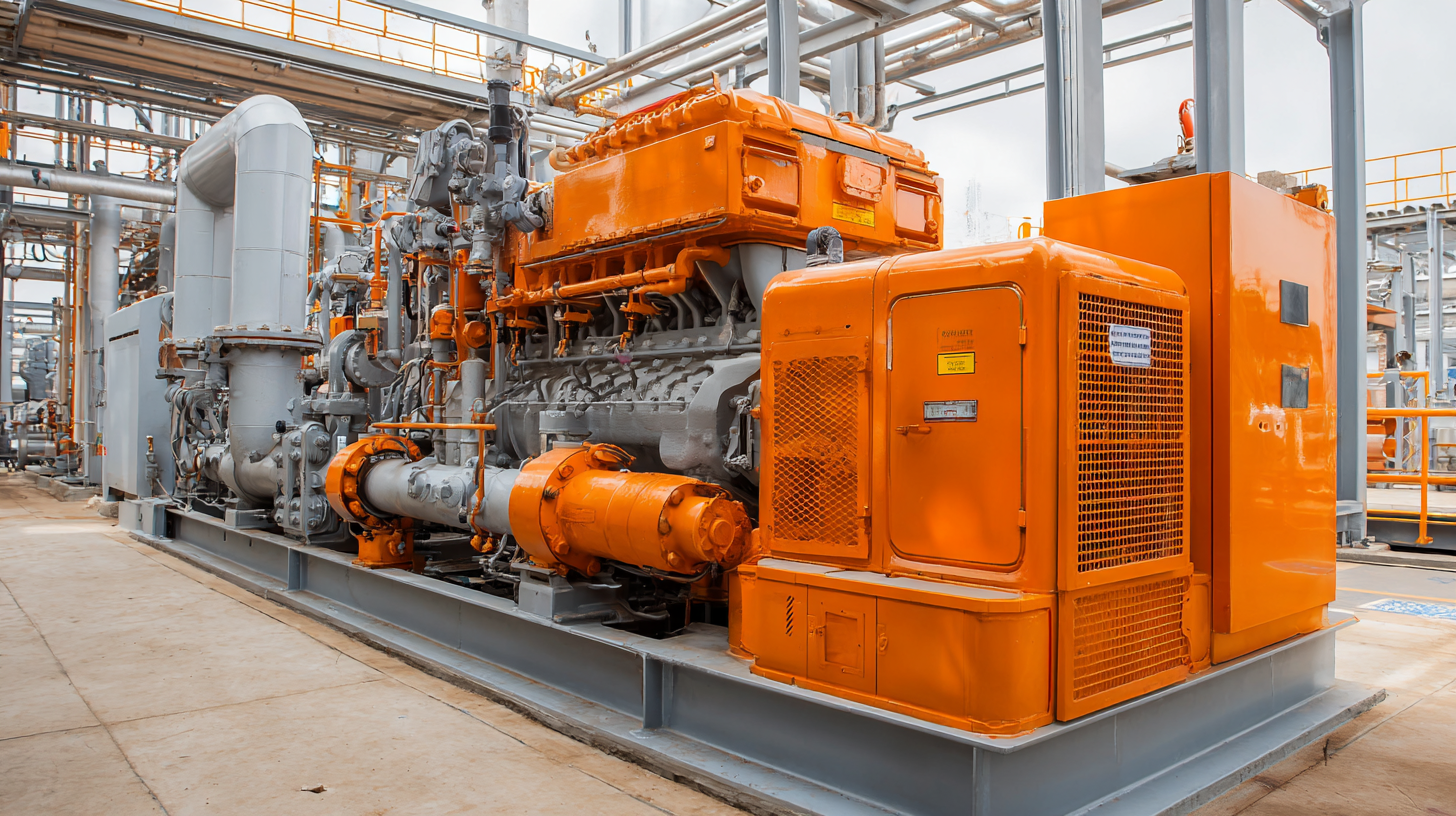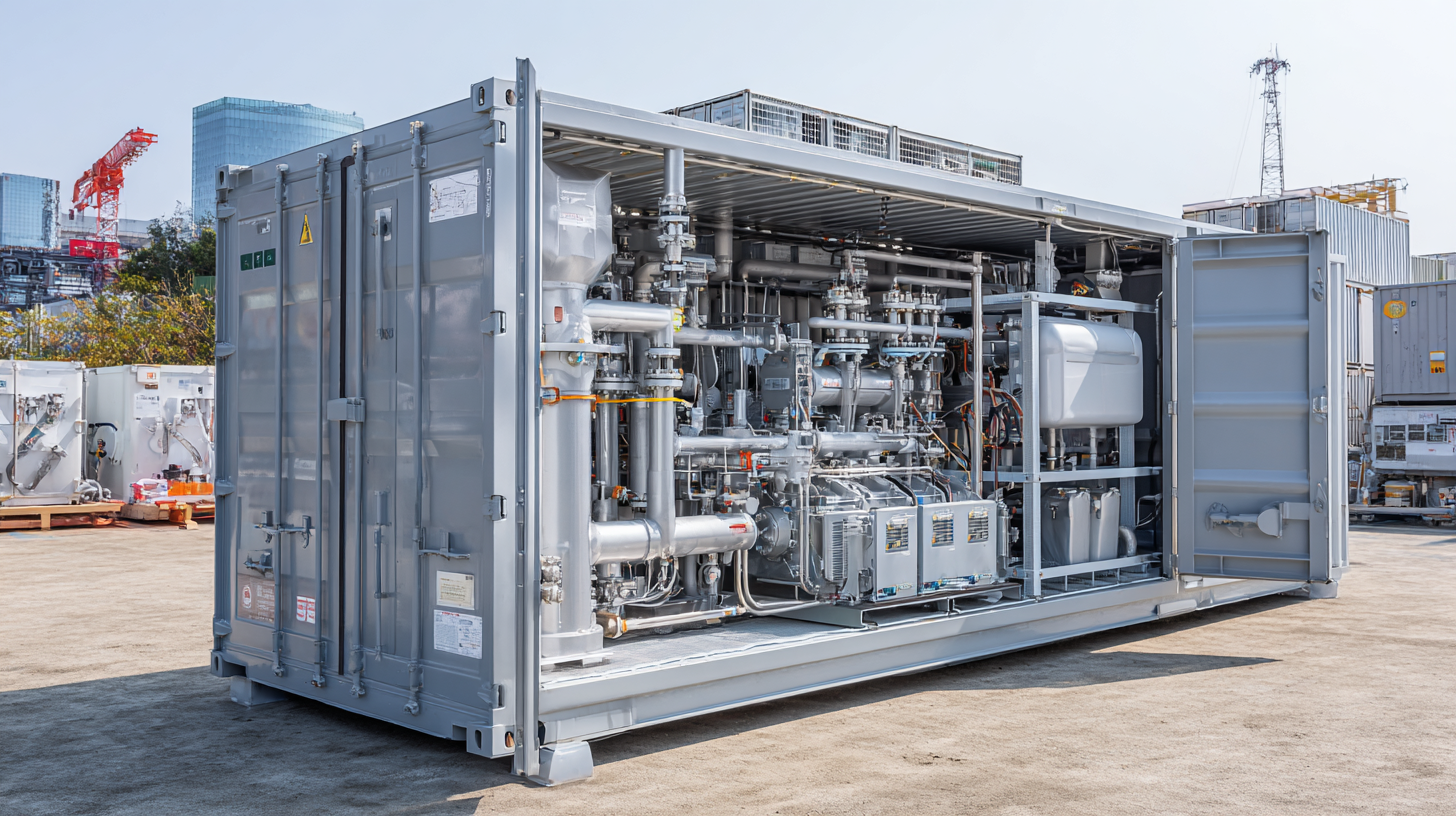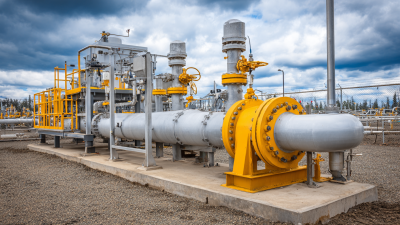How to Optimize Your Operations with a Natural Gas Machine
Optimizing operations in industrial settings is crucial for enhancing efficiency and reducing costs. One effective approach to achieve this is through the integration of a natural gas machine into your operational framework. Natural gas machines provide a reliable and eco-friendly alternative to traditional fuel sources, offering numerous benefits such as lower emissions, reduced energy costs, and improved operational resilience. By leveraging the capabilities of a natural gas machine, businesses can streamline their processes, minimize downtime, and enhance overall productivity. In this guide, we will explore practical strategies to optimize your operations, focusing on how to effectively implement and utilize a natural gas machine, ensuring that your organization remains competitive in an ever-evolving marketplace.

Understanding the Benefits of Natural Gas Machines for Operational Efficiency
 Natural gas machines are becoming increasingly popular in various industries due to their ability to enhance operational efficiency. One of the primary benefits of using natural gas as a fuel source is its cost-effectiveness compared to traditional fossil fuels. By switching to natural gas machines, businesses can significantly reduce their energy expenses while maintaining or even increasing their productivity levels. This shift not only results in lower operational costs but also contributes to more sustainable practices, as natural gas emits fewer greenhouse gases when burned.
Natural gas machines are becoming increasingly popular in various industries due to their ability to enhance operational efficiency. One of the primary benefits of using natural gas as a fuel source is its cost-effectiveness compared to traditional fossil fuels. By switching to natural gas machines, businesses can significantly reduce their energy expenses while maintaining or even increasing their productivity levels. This shift not only results in lower operational costs but also contributes to more sustainable practices, as natural gas emits fewer greenhouse gases when burned.
Furthermore, natural gas machines offer superior performance and reliability, which are crucial for maintaining seamless operations. Many natural gas engines provide higher torque and quicker response times, essential for demanding applications. Additionally, the technology behind these machines often leads to longer maintenance intervals and less downtime, further improving efficiency. By integrating natural gas machines into their operations, companies not only optimize their workflow but also position themselves as environmentally responsible businesses, appealing to a growing market that values sustainability.
Choosing the Right Natural Gas Machine for Your Business Needs
When selecting the right natural gas machine for your business, it's essential to thoroughly assess your specific needs and operational requirements. Begin by evaluating the primary applications the machine will be used for, whether it's for heating, power generation, or industrial processes. Each application may demand different specifications in terms of capacity, efficiency, and technology. For instance, a restaurant might prioritize a high-efficiency natural gas oven, while a manufacturing facility may require robust generators for continuous power supply.
Next, consider the environmental regulations and efficiency standards relevant to your industry. Many businesses are increasingly adopting green initiatives, making it vital to choose machines that not only meet compliance but also offer energy-efficient options. Look for models with high AFUE (Annual Fuel Utilization Efficiency) ratings or those designed to minimize emissions. Finally, factor in the maintenance and support services provided by the manufacturer. A machine that is easy to maintain and has a reliable after-sales service can significantly impact your operational efficiency and longevity of investment.

Implementing a Natural Gas Machine: Best Practices and Strategies
Implementing a natural gas machine in your operations can lead to significant efficiencies and cost savings. To ensure a smooth transition, start by conducting a thorough assessment of your current operations. This will help identify specific areas where a natural gas machine can be integrated effectively. Understanding the benefits and potential challenges is crucial in formulating a tailored approach that meets your operational needs.
Tips: When selecting a natural gas machine, prioritize models that offer advanced technology and efficiency ratings. Look for machines equipped with robust safety features to mitigate risks associated with natural gas usage. Additionally, consider the training needs of your staff, as proper education on handling and maintenance can enhance productivity and safety.
Monitoring and maintenance are vital to the successful implementation of your natural gas machine. Establish a routine schedule for inspections and maintenance to prevent unexpected downtime. Keeping up with these practices will not only extend the life of your equipment but will also optimize performance.
Tips: Use data analytics to track the performance of your natural gas machine over time. This information can help identify patterns and areas for improvement, ultimately steering your operations towards greater efficiency and sustainability.
Monitoring and Maintaining Your Natural Gas Machine for Optimal Performance
To ensure the optimal performance of your natural gas machine, consistent monitoring and maintenance are essential. Regularly checking the machine's operating parameters, such as pressure, temperature, and flow rates, can help identify potential issues before they escalate into costly repairs. Utilizing automated monitoring systems can provide real-time data, allowing operators to make informed decisions and adjustments on the fly. Regularly tracking these metrics also aids in maintaining energy efficiency, which is crucial for reducing operational costs.
Maintenance schedules should be established based on the manufacturer's recommendations and the specific usage patterns of the machine. Key tasks include inspecting and cleaning filters, checking for gas leaks, and ensuring that all components are functioning correctly. Furthermore, training personnel to recognize early warning signs of malfunction can significantly enhance the reliability of the equipment. By prioritizing continuous monitoring and a proactive maintenance approach, businesses can enhance the lifespan of their natural gas machines and maintain peak performance throughout their operation.
Natural Gas Machine Performance Monitoring
This bar chart illustrates the efficiency percentage and maintenance costs of natural gas machines over the first half of the year. Regular monitoring and optimization can ensure that machines operate at peak performance while managing maintenance costs effectively.
Troubleshooting Common Issues with Natural Gas Machines in Operations
Troubleshooting common issues with natural gas machines is crucial for maintaining efficient operations. One of the most frequent problems operators encounter is inconsistent fuel supply, which can lead to fluctuations in performance. To address this, it is essential to regularly check the gas pressure and ensure that all connections are tight and free from leaks. Implementing a monitoring system can also help in swiftly identifying any drop in pressure or flow, allowing for prompt intervention.
Another common issue is the accumulation of carbon deposits in the combustion chamber. This buildup can hinder the machine’s efficiency and increase maintenance costs. To mitigate this, routine maintenance should include a thorough cleaning of the combustion components and the use of appropriate fuel additives that can minimize deposits. Operators should also be vigilant for warning signs, such as unusual noises or decreased output, and respond immediately to prevent more significant problems from developing. By staying ahead of these common issues, businesses can enhance the reliability and longevity of their natural gas machinery, ensuring smoother operations overall.
How to Optimize Your Operations with a Natural Gas Machine - Troubleshooting Common Issues with Natural Gas Machines in Operations
| Issue | Description | Potential Solutions | Preventive Measures |
|---|---|---|---|
| Low Efficiency | Equipment is not operating at full performance. | Regular maintenance checks, cleaning filters, and calibrating settings. | Implementing a maintenance schedule. |
| Unusual Noises | Strange sounds during operation indicating possible malfunction. | Inspect moving parts and tighten loose components. | Conduct routine inspections and address issues promptly. |
| Gas Leaks | Presence of natural gas outside of the machine indicating leakage. | Immediate shutdown and seal leaks or call a technician. | Regular leak tests and inspections of gas connections. |
| Fluctuating Pressure | Inconsistent pressure levels affecting performance. | Check pressure regulators and adjust settings. | Monitor pressure levels regularly. |
Related Posts
-

How to Choose the Right Natural Gas Machine for Your Business Needs
-

Addressing Common Issues with Basic Machine Shop Equipment: Solutions for Global Buyers
-

Mastering Industrial Shop Equipment A Comprehensive Guide for Beginners
-

Exploring Innovative Examples of Industrial Supplies and Equipment for Modern Manufacturing
-

Essential Guide to Selecting the Right Industrial Pumps and Machines for Your Business
-

The Ultimate Guide to Choosing the Right Industrial Machinery and Equipment for Your Business
